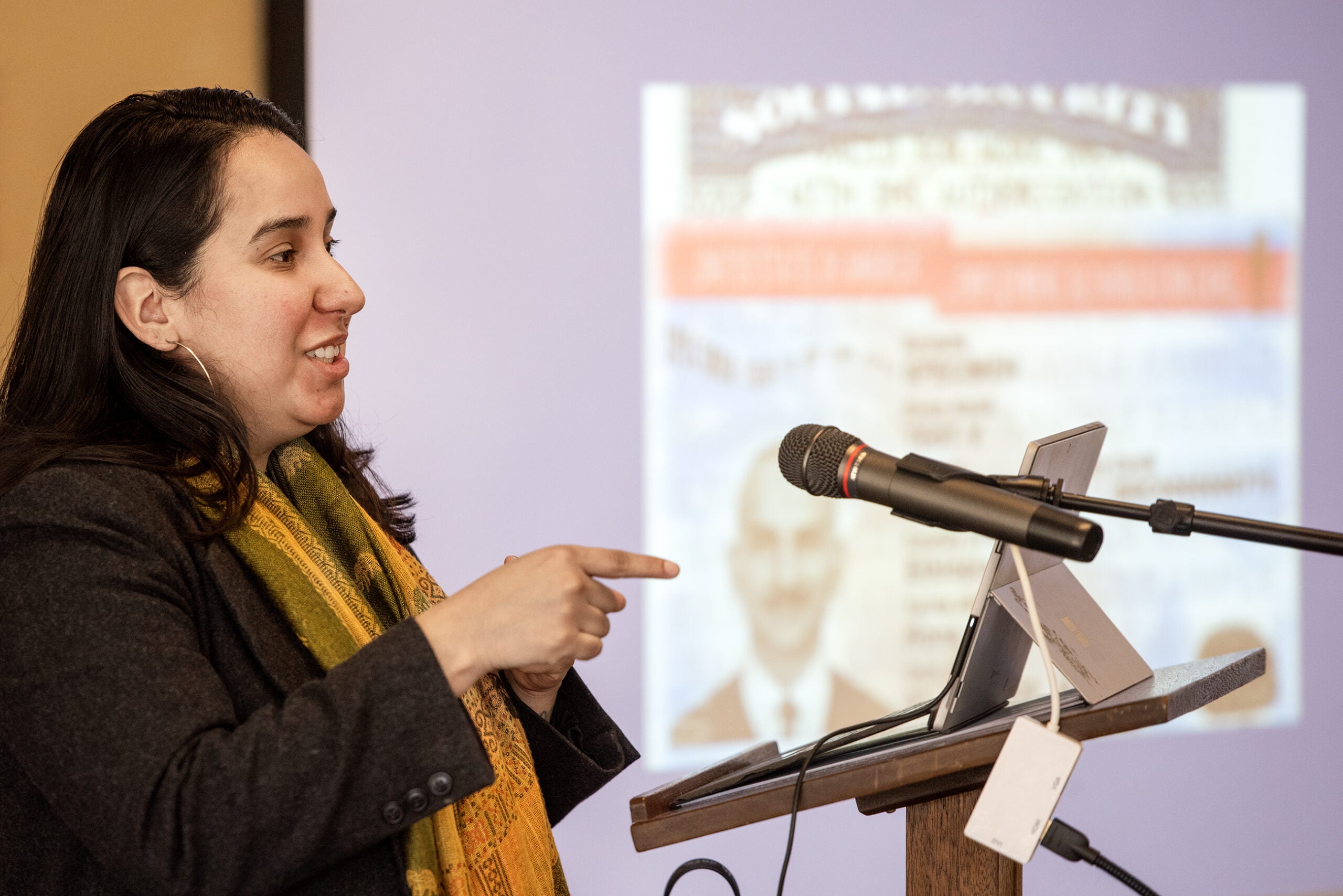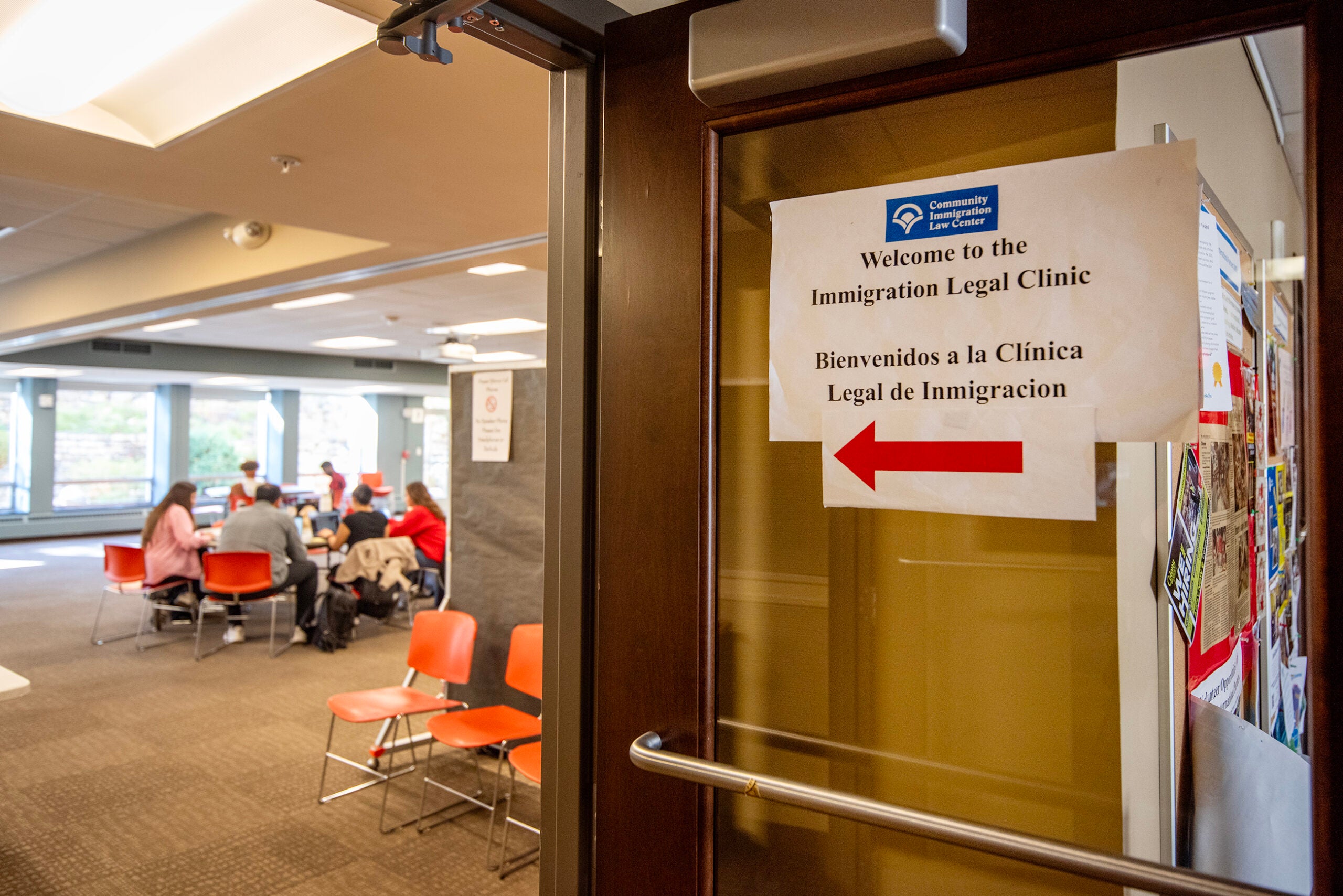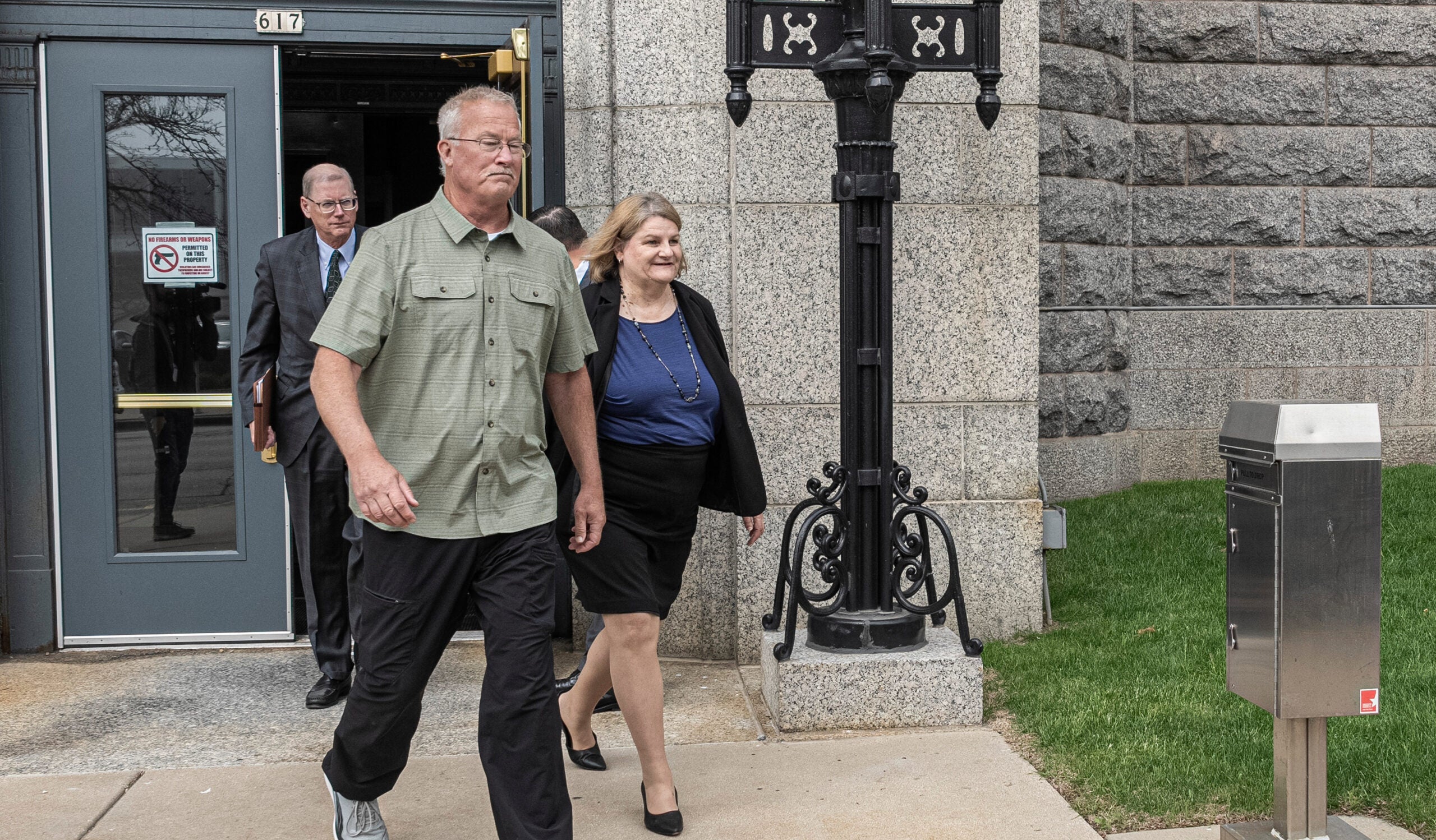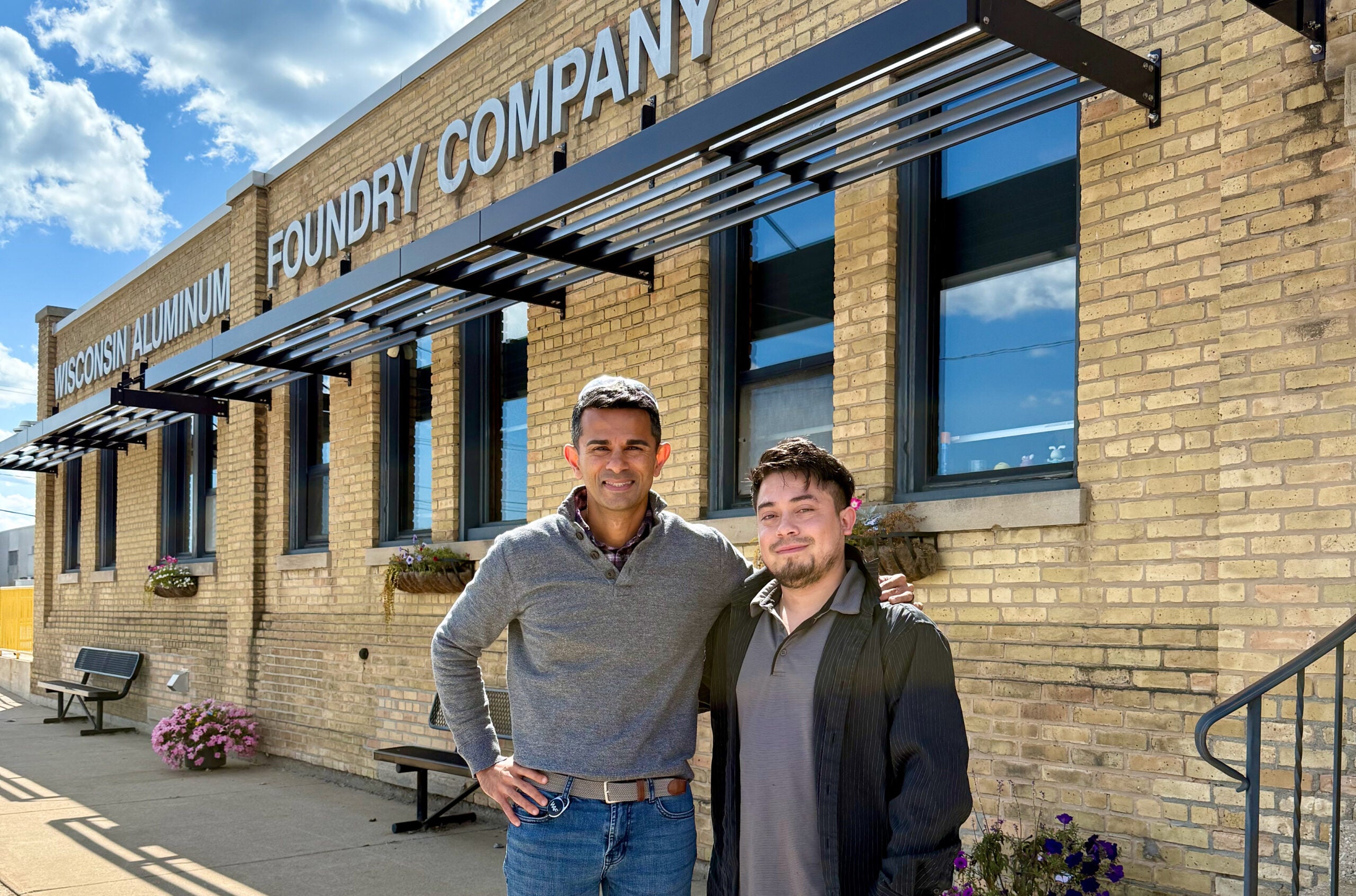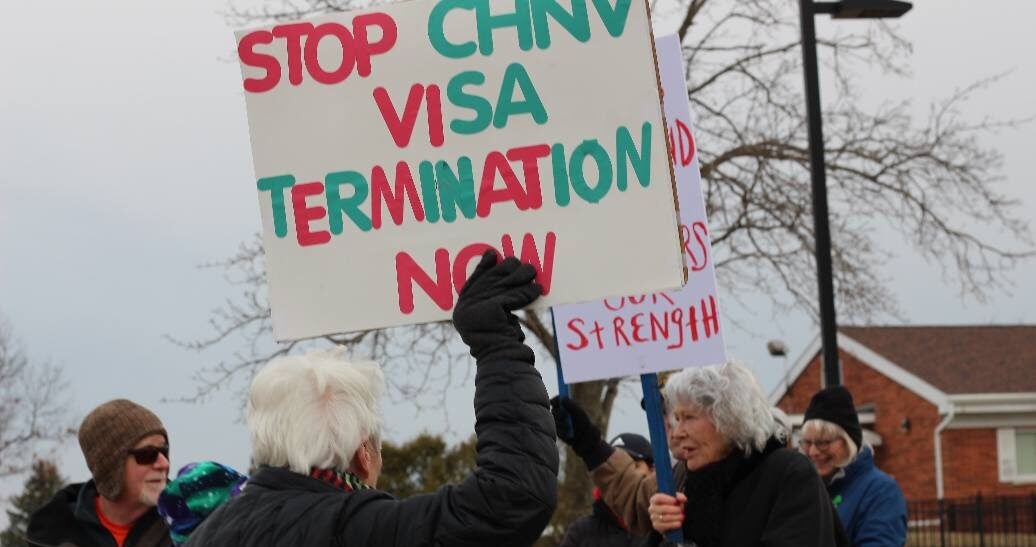On a recent spring afternoon, more than 30 people filed into the basement of a church in Madison.
Some carried babies and toddlers in strollers and slings. They settled into plastic chairs as attorney Aissa Olivarez of the Community Immigration Law Center queued up a slideshow.
The people in the crowd were new arrivals to the U.S., and some of them are seeking asylum. That means they need to prove they left their home countries because they fear persecution for characteristics like their race or their politics.
News with a little more humanity
WPR’s “Wisconsin Today” newsletter keeps you connected to the state you love without feeling overwhelmed. No paywall. No agenda. No corporate filter.
In Spanish, Olivarez shared basic information like how to look up your immigration case and how to fill out government paperwork requesting asylum.
The submission must be done in English, and the process often involves recounting trauma like imprisonment, sexual assault or torture.
Last year, the law center reached 400 people at its informational seminars. It was able to offer free one-on-one legal consultations to about half as many people, and it helped people complete a total of 144 asylum applications.
The center is a nonprofit that gets some funding from the city of Madison and Dane County.
But with a staff of only three attorneys, the organization has no choice but to turn away many of the immigrants who come seeking legal help, said Diana Benitez, a paralegal with the center.
“It’s desperate,” she said. “It’s just the the level of desperation people have when they come to speak with you is really — it’s palpable.”
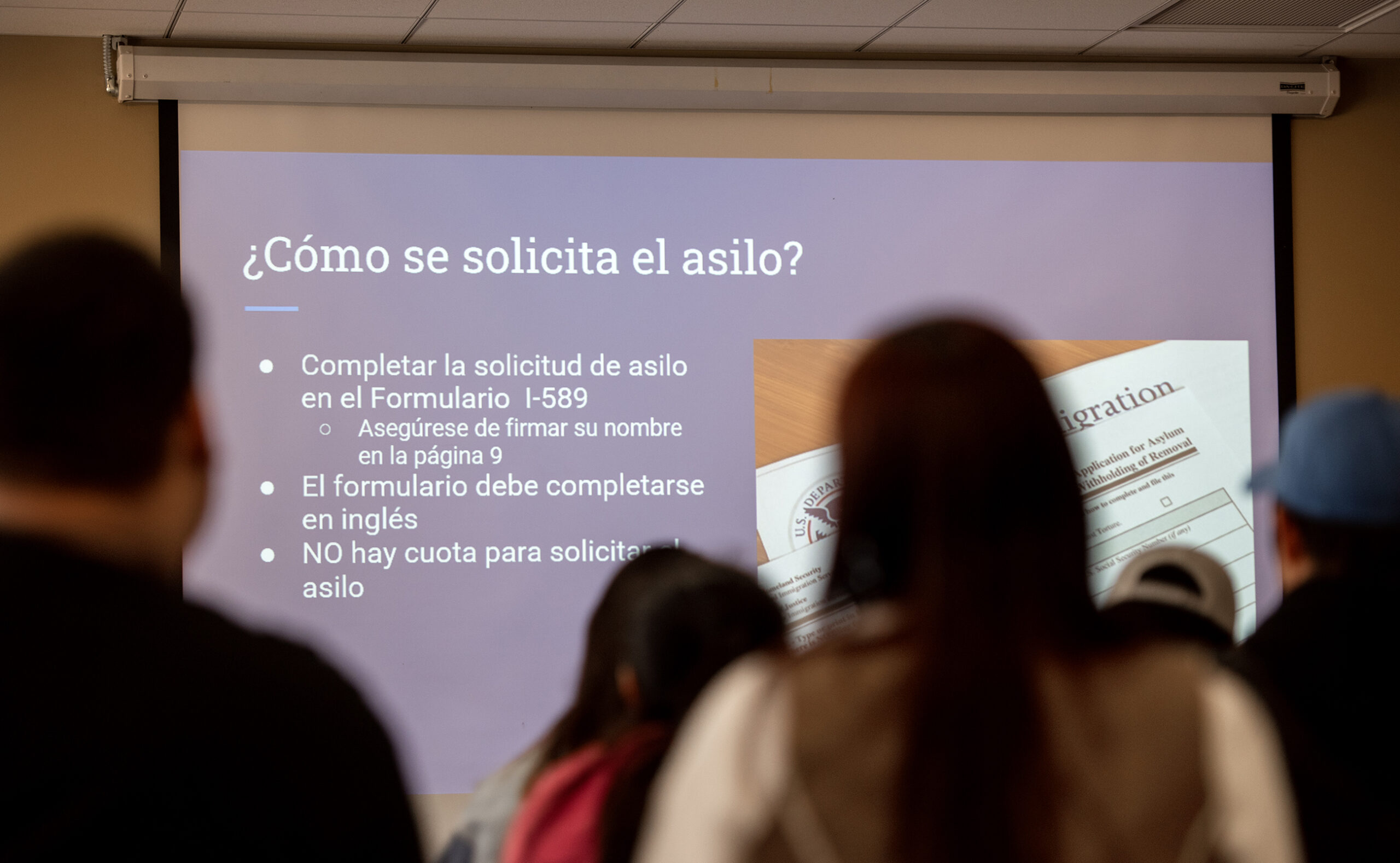
Most immigrants facing deportation aren’t represented by an attorney
More than 20,000 people living in Wisconsin have immigration cases pending that could result in deportation.
But the vast majority of those people won’t be represented by an attorney.
Nationwide, there’s a ballooning number of cases stuck in immigration court, and a ballooning need for immigration lawyers.
In 2019, there were more than 1 million pending U.S. immigration cases. Now, that backlog has more than tripled to surpass 3 million cases.
Sue Long directs Syracuse University’s Transactional Records Access Clearinghouse, or TRAC, which analyzed that federal data. She says the backlog has been decades in the making because funding to keep the courts running hasn’t kept up with enforcement.
“They haven’t had the budget to increase the number of immigration judges and support staff that are needed to hold hearings and make decisions compared to increasing the budget, for example, for the Border Patrol,” she said.
Even as more immigrants are caught up in pending deportation proceedings, data from TRAC shows they’re less likely to be represented by an attorney.
Five years ago, immigrants had legal representation in 65 percent of cases nationally compared to 30 percent now.
For immigrants living in Wisconsin, the rate of representation is even lower, at 27 percent.
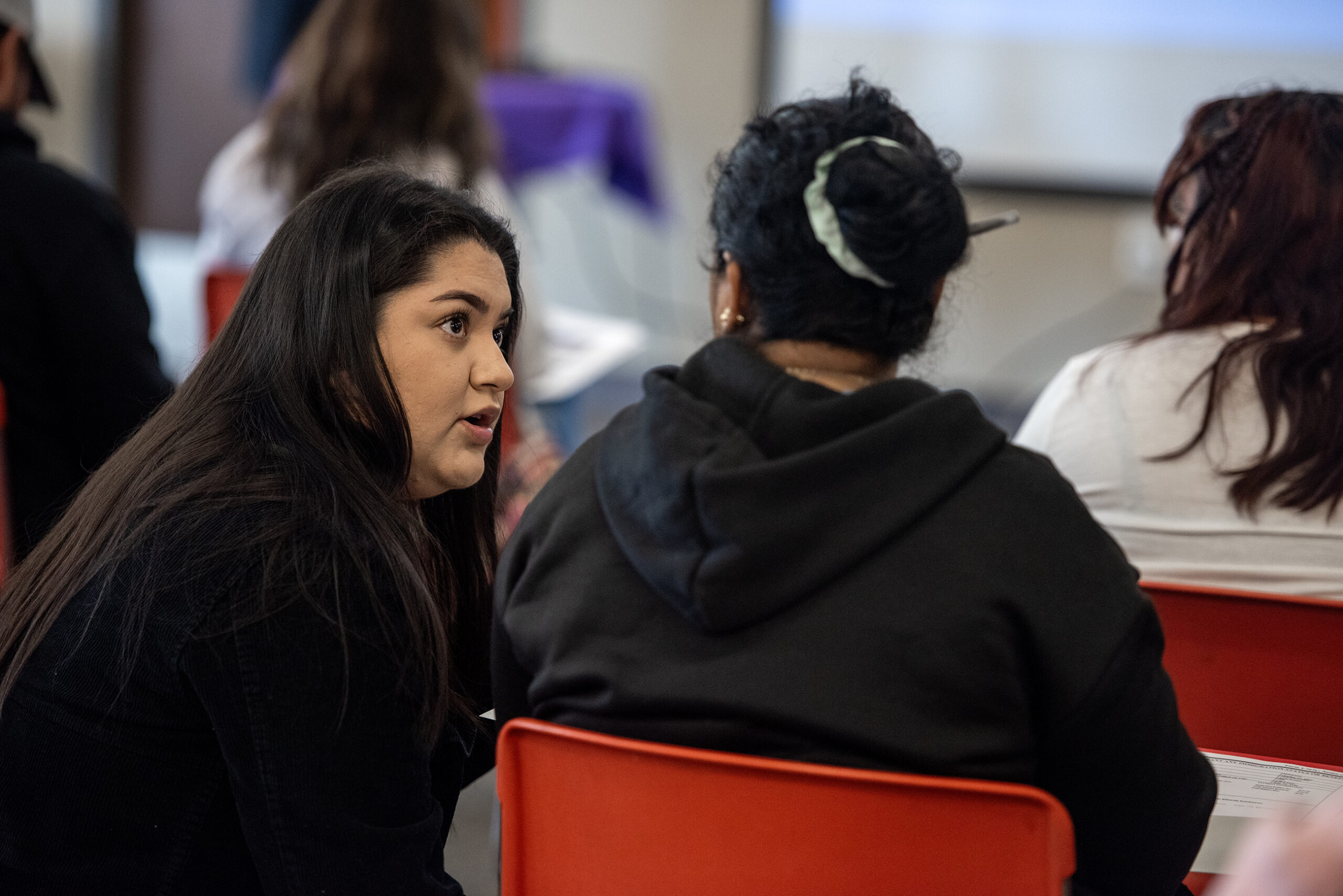
Why having an attorney matters
The 1963 U.S. Supreme Court decision that guaranteed the right to an attorney applies to criminal defendants. It does not apply to immigration cases, which are generally civil matters.
Annie Chen with the Vera Institute of Justice, a left-leaning think tank, argues the current system is fundamentally unfair.
“The government is on the other side prosecuting and trying to deport you,” Chen said. “The government is always represented by a trained attorney. But the immigrant is often in immigration court alone.”
The Vera Institute advocates in favor of creating a right to legal representation for immigrants facing deportation, much like the public defender system that already exists in criminal cases.
As part of that initiative, Dane County received a $100,000 grant from the Vera Insitute in 2017. That pilot program, which has since ended, helped fund attorneys through Community Immigration Law Center and the University of Wisconsin Law School’s Immigrant Justice Clinic for people facing deportation.
“People who are applying for asylum have left everything. They didn’t come with their bank account.”
Barb Graham, director of refugee and immigration services at Catholic Charities of Milwaukee
Studies show immigrants who have attorneys are more likely to be released on bond if they’re detained, and less likely to be deported.
A 2016 study from the American Immigration Council found that, among immigrants who hadn’t been detained, those with attorneys were five times more likely to seek relief from deportation and five times as likely to be granted that relief if they sought it.
Among those who were detained, people with lawyers were nearly 11 more times to seek relief and twice as likely to get it.
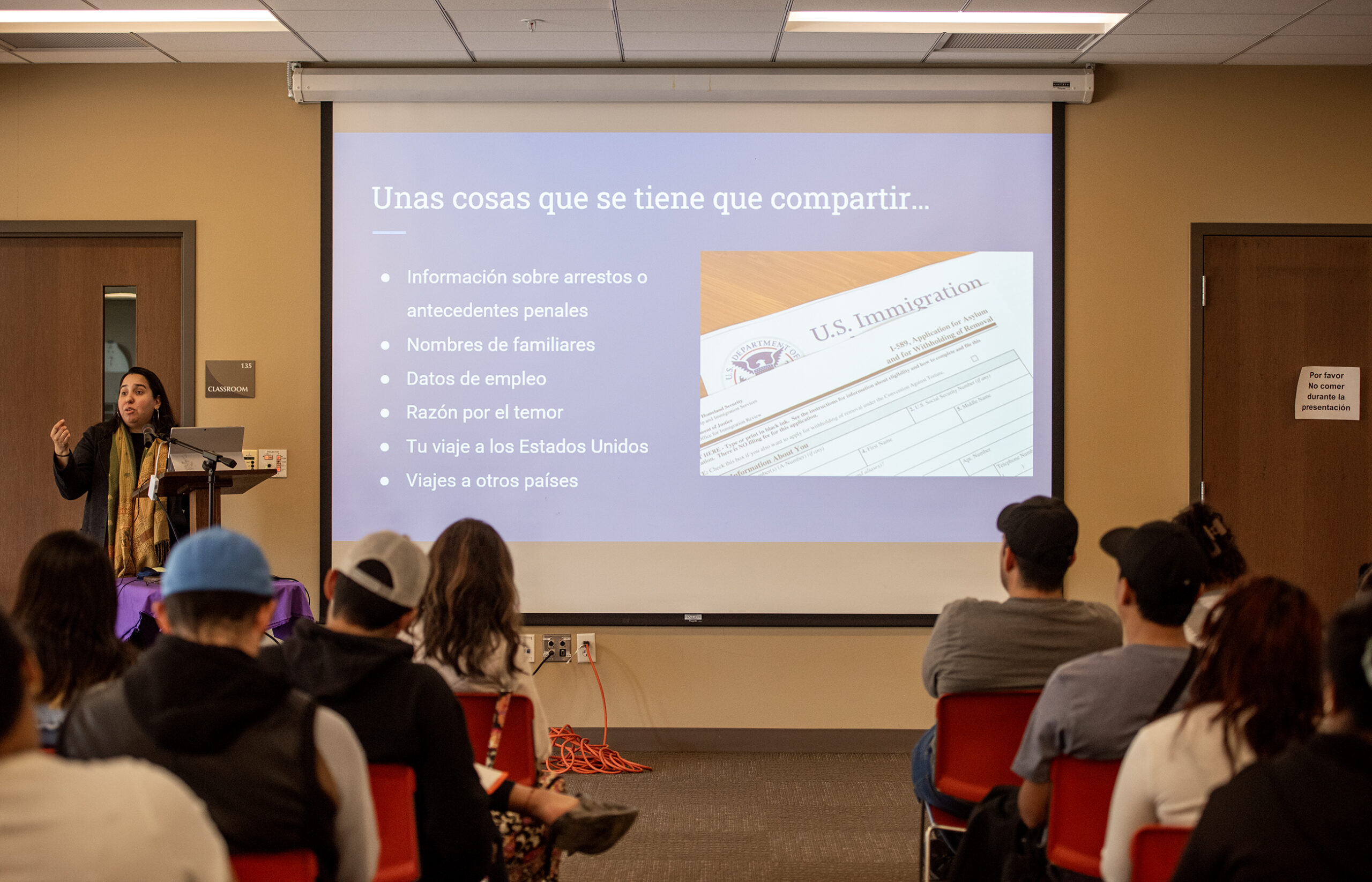
Need for attorneys far exceeds availability, advocates say
Barb Graham says the lack of legal access is particularly acute for the most recent arrivals to the U.S., including those seeking asylum.
“People who are applying for asylum have left everything,” Graham said. “They didn’t come with their bank account.”
Graham oversees refugee and immigration legal services for Catholic Charities of Milwaukee. It’s one of a handful of organizations in Wisconsin that handles immigration cases for free, or pro bono.
Last year, Catholic Charities of Milwaukee provided legal services to about 4,000 clients. Many more people reached out for help, but Graham has stopped counting the number of unmet requests.
“It was just too depressing,” she said. “We literally don’t keep track anymore. “
Even when people can afford to pay thousands of dollars out of pocket, Graham says private immigration attorneys are in short supply.
In addition to being emotionally tolling, the work is complex, Graham said. An asylum submission, for example, can span more than 100 pages.
And the federal immigration court with jurisdiction over Wisconsin is located in Chicago, which means attorneys often have to factor in time for traveling to hearings.
“Immigration attorneys burn out doing this,” Graham said. “To go down to the court at nine o’clock, I have to be at Amtrak at six to get on the train, which means I had to leave home by 5:30.”
That schedule can make it difficult to accomodate other responsibilities.
“For people who have kids, you need to find someone to make sure they get to school, because they don’t go to school by six in the morning,” Graham added.
Teddy Chadwick is a private attorney with a decade of experience handling immigration cases in Greater Milwaukee. He says he’s seen demand for legal services rise “exponentially” in recent years.
Chadwick speaks fluent Spanish, but he says there’s a limited pool of bilingual attorneys. And, he notes, in part because of court backlogs, immigration cases can take years and years.
“I have court hearings that are scheduled out till 2028 and 2029, and what I think people fail to realize is that there’s nothing that the clients can do to really make that go faster,” he said.
That system, Chadwick says, can be all but impossible to navigate without an attorney.
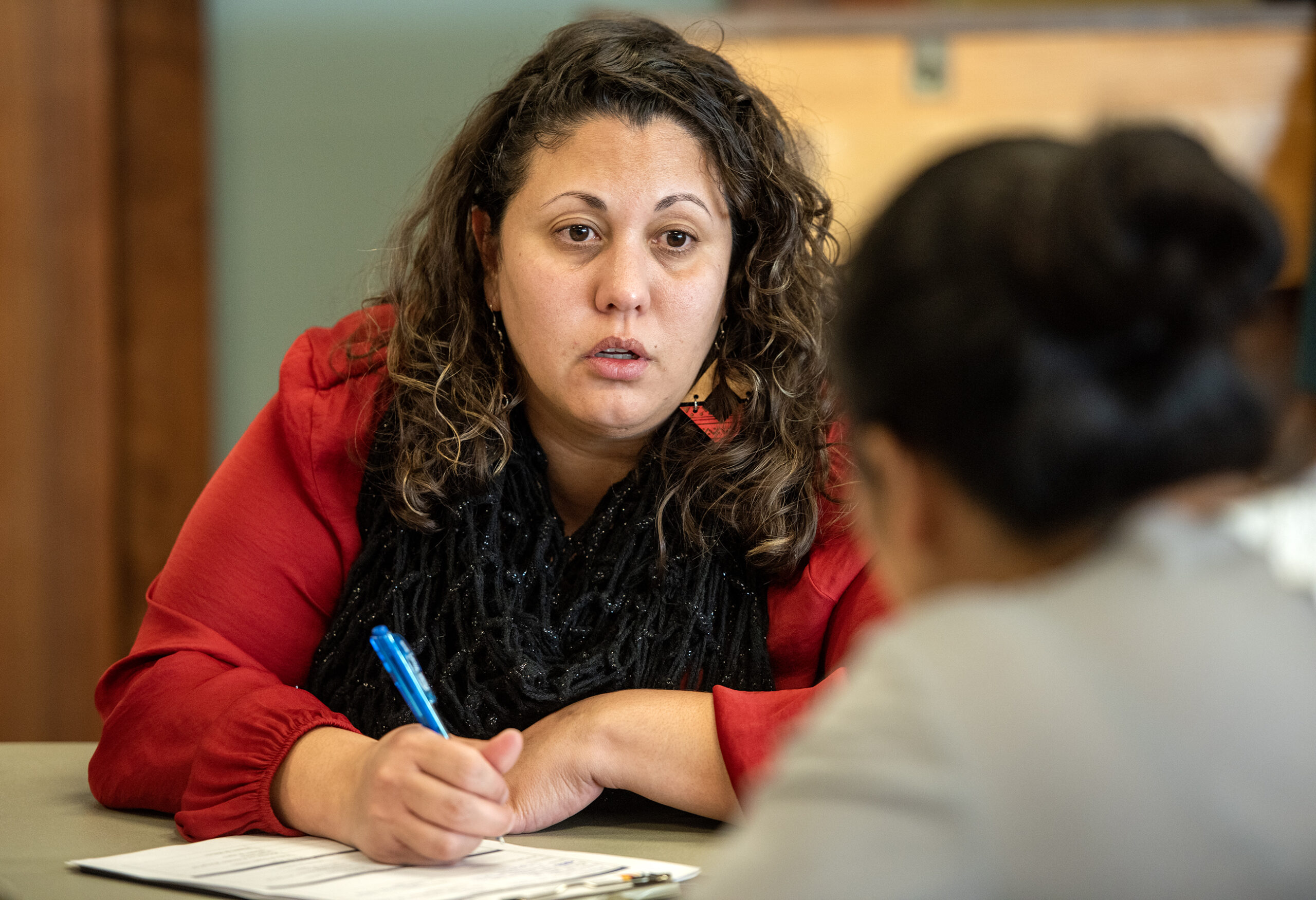
Wisconsin Public Radio, © Copyright 2025, Board of Regents of the University of Wisconsin System and Wisconsin Educational Communications Board.

